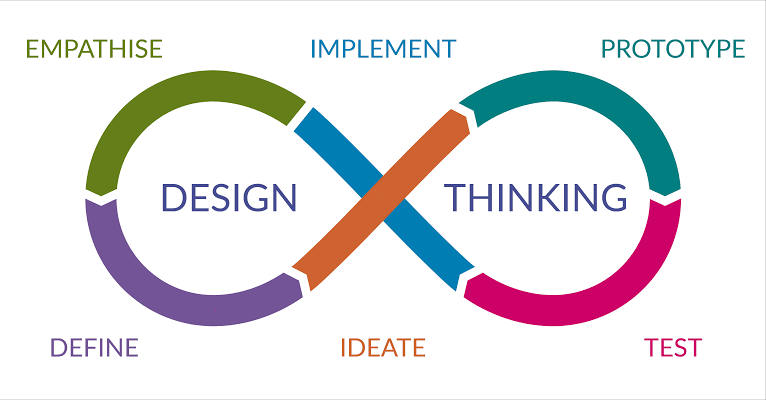The Personality of a Business: More Than Just a Brand Image
What makes you loyal to a brand? It’s more than just their products.
In our day-to-day life, we often ascribe personalities to the people we meet — the cheerful neighbor, the meticulous colleague, or the compassionate friend. Just as individuals radiate distinct personalities, businesses too emanate unique auras. A company’s personality goes beyond its catchy logo or vibrant brand colors; it’s a culmination of its values, actions, offerings, and relationships.
Understanding Business Personality
The personality of a business isn’t merely about its brand image. It’s a more profound reflection of its core, influencing its product quality, pricing, employee relations, and customer engagement.
Carving an Identity: Different Strokes for Different Brands
In a market teeming with competitors, what sets a brand apart? It’s not just the quality of products or the catchy jingles. A significant differentiator is a brand’s unique ‘personality’ — the essence that colors every facet of its business, from production to promotion.
Just as humans can be quirky, serious, passionate, or a myriad of other attributes, businesses too develop distinct personalities.

Let’s explore how some renowned brands exemplify unique characters in the commercial world.
Examples of Business Personalities
The Luxury Maestro
Example: Louis Vuitton or Rolex
These brands scream exclusivity. From the meticulous craftsmanship to the premium pricing, every aspect is curated to cater to the elite. Walk into any of their flagship stores, and you’ll witness employees who’ve undergone rigorous training to maintain this gold standard. Their brand personality? Elite, opulent, and aspirational.
The Green Warrior
Example: Patagonia
Some companies wear their commitment to the environment on their sleeves. Take Patagonia, for instance. Priced a tad higher, their products don’t just promise quality but also resonate with a commitment to sustainability. Their brand personality? Environmentally-driven, ethical, and principled.
The Game-Changer
Example: Tesla or Spotify
Imagine entering a traditional market and rewriting the rules. That’s precisely what disruptors like Tesla and Spotify did. Tesla’s diverse price range caters to a broader audience, sidelining the typical dealership model. Their brand personality? Inventive, audacious, and pioneering.
The People’s Brand
Example: Ben & Jerry’s or Costco
Brands like these put their employees at the forefront. By offering wages higher than the industry average and comprehensive benefits, they don’t just talk the talk but walk the walk. Their brand personality? Compassionate, community-centric, and value-driven.
To further illustrate the impact and depth of a business’s personality, let’s dive into a real-world transformation: the rebranding of Airbnb.
Airbnb underwent a significant rebranding process that aimed to shift its identity from merely being a travel accommodation facilitator to a more comprehensive brand built around belonging, trust, and sharing.
Case Study: Airbnb’s Personality Shift and Rebranding
Background: Founded in 2008, Airbnb started as a platform that allowed homeowners to rent out their spaces to travelers. While it disrupted the traditional hotel industry, its brand personality was initially centered around affordable travel accommodation.
The Shift: In 2014, Airbnb introduced a new logo, website, and mobile interfaces, but, more importantly, a refreshed brand message. They unveiled the “Bélo,” which they described as the “universal symbol of belonging.” The rebranding aimed to encapsulate the idea that Airbnb provided more than just a place to sleep; it was about experiencing cities as if you truly lived in them.
Outcome: The rebranding was met with mixed reactions; some loved it while others were skeptical. However, over time, Airbnb succeeded in positioning itself as a brand focused on community, belonging, and unique travel experiences. Airbnb’s “Live There” campaigns further solidified its brand personality of local, authentic experiences over touristy trips.
Design Thinking: Sculpting Business Personality
A business’s personality is like an iceberg. The brand image might be the tip that’s visible, but beneath lies a colossal structure of values, actions, and ethos. It’s these submerged elements that truly define a brand.
By integrating Design Thinking, businesses can ensure that their personality isn’t just authentic but also resonates powerfully with their audience.
Design Thinking isn’t just a buzzword; it’s a strategic approach that places humans at the core of business solutions. Whether you’re trying to unearth your company’s personality or morph it, Design Thinking offers a structured pathway.

Empathize
Start by diving deep into the minds of your stakeholders. More than just customers, it’s about employees, suppliers, and even competitors. Harness tools like interviews, surveys, and ethnographic studies.
Define
Now, consolidate your findings. What personality does your business currently exude? Does it align with your core vision? If not, what would you like it to be?
Ideate
Time to get those creative juices flowing. Brainstorm ways to bridge the gap between the current and the aspirational personality. Perhaps, it’s time for a product revamp or a change in supplier partnerships.
Prototype
Before you jump in, dip your toes. Test your ideas on a micro-scale. Mulling over an eco-friendly product line? Launch a limited edition to sense the market pulse.
Test & Refine
Feedback is gold. Post-prototype, gather as much as you can. Refine, tweak, and modify based on real-world insights.
Implement & Evolve
Implement your strategies. But remember, the market evolves, and so do businesses. Periodically revisit your strategies, ensuring they align with your brand personality.
The Crucial Role of Stakeholders in Shaping Personality
While the leadership and decision-makers of a company play a pivotal role in determining its direction, it’s the collective spirit of stakeholders — from employees to customers, from suppliers to investors — that shapes a business’s personality.
This collective spirit often acts as both a mirror reflecting the current brand personality and a compass guiding its evolution.
Navigating the Iceberg’s Tip: The Hidden Dangers Beneath
In the vast ocean of business, the brand’s visible image is just the tip of the iceberg. Dive deeper, and the massive expanse of a company’s personality reveals itself, influenced and crafted by every stakeholder involved. But, what happens if a company loses sight of its true essence or neglects its inherent personality?
The repercussions extend far beyond a mere identity crisis, affecting its rapport with customers, the morale of its employees, and its overall efficiency. Let’s dig into the risks of overlooking this critical aspect of business identity.
The Risks of Overlooking Business Personality
Customer Disconnect
In the digital age, customers seek authentic connections. A business that appears inconsistent or inauthentic in its personality can alienate its target audience, leading to reduced loyalty and trust.
Employee Disengagement
Employees want to work for companies whose values and personality align with their own. A mismatch or a perception of inauthenticity can result in decreased motivation, job satisfaction, and higher turnover rates.
Operational Inefficiencies
A clear and consistent business personality provides a guiding light for decision-making at all levels. Without this, businesses may face paralyzing indecision or conflicting directions, leading to inefficiencies.
Anchoring Your Brand’s Essence: Strategies to Uphold Authenticity
In a dynamic business landscape, with evolving market trends and shifting consumer preferences, maintaining brand authenticity is akin to walking a tightrope.
While adaptation is necessary, the challenge lies in evolving without losing the core essence that defines the brand’s unique personality. How can businesses navigate this delicate balance?
Here are some actionable strategies to ensure that a company’s true spirit shines through, irrespective of external pressures or changes.
Tips for Maintaining an Authentic Business Personality
Regular Feedback:
Engage in periodic feedback sessions with various stakeholders. Their insights can offer invaluable perspectives on how your business personality is perceived.
Stay True to Your Roots: While evolution is essential, remember the core values and vision that your business was founded on. These are the anchors that ensure your personality remains consistent.
Train and Educate: Ensure that every team member, from leadership to frontline employees, understands and embodies the business personality. Regular training sessions can help in reinforcing this.
Monitor and Adapt: Keep an eye on market trends, competitor moves, and global shifts. Adapt your strategies, but always through the lens of your business personality.
Conclusion
The personality of a business is a living, breathing entity. It’s shaped by myriad factors and influences every interaction a company has with the world. As consumers, we often don’t realize how much a company’s personality sways our choices.
Think back to a recent purchase. Was it solely the product’s functionality, or did the brand’s ethos, values, or character play a part?
Businesses, it’s essential to introspect. Are you clear about the personality you’re projecting? Does it mirror the values upon which your company was built? Such reflection is crucial in today’s market, where authenticity and genuine connection matter more than ever.
By understanding, nurturing, and evolving a business personality, companies have the power to forge deeper connections, foster unparalleled trust, and achieve sustained success in an ever-shifting world.
As you embark on this journey, always remember, in the vast sea of commerce, your business personality is the lighthouse that guides stakeholders towards you. Cherish it, nurture it, and let it shine as your guiding beacon.

